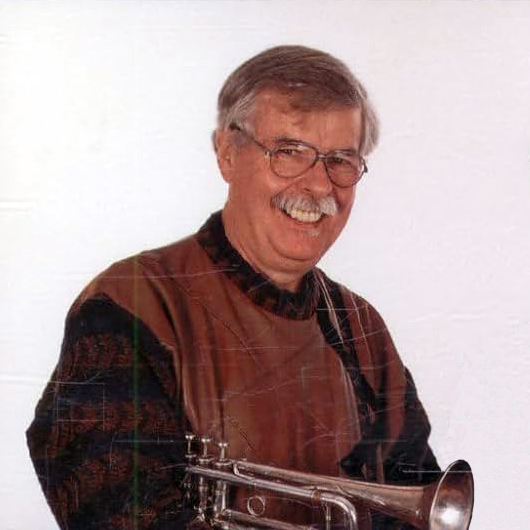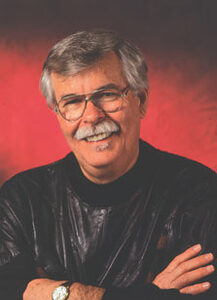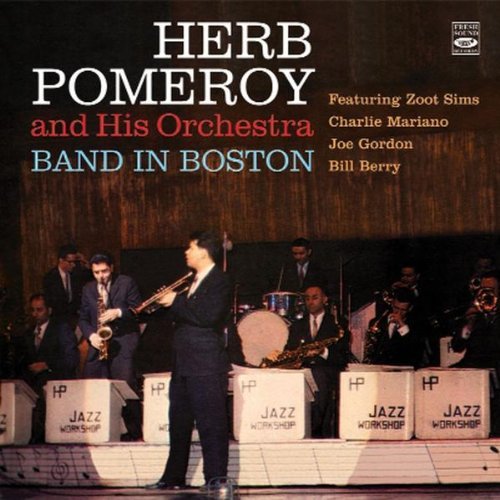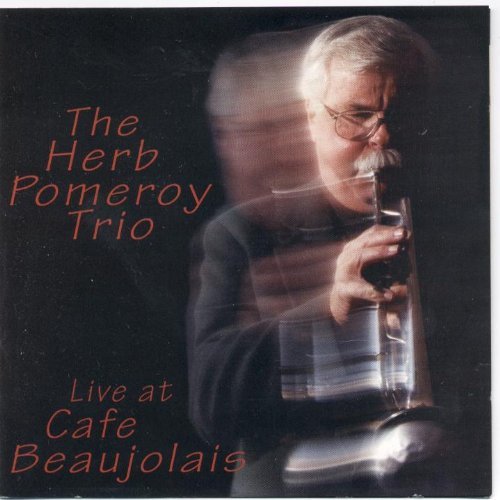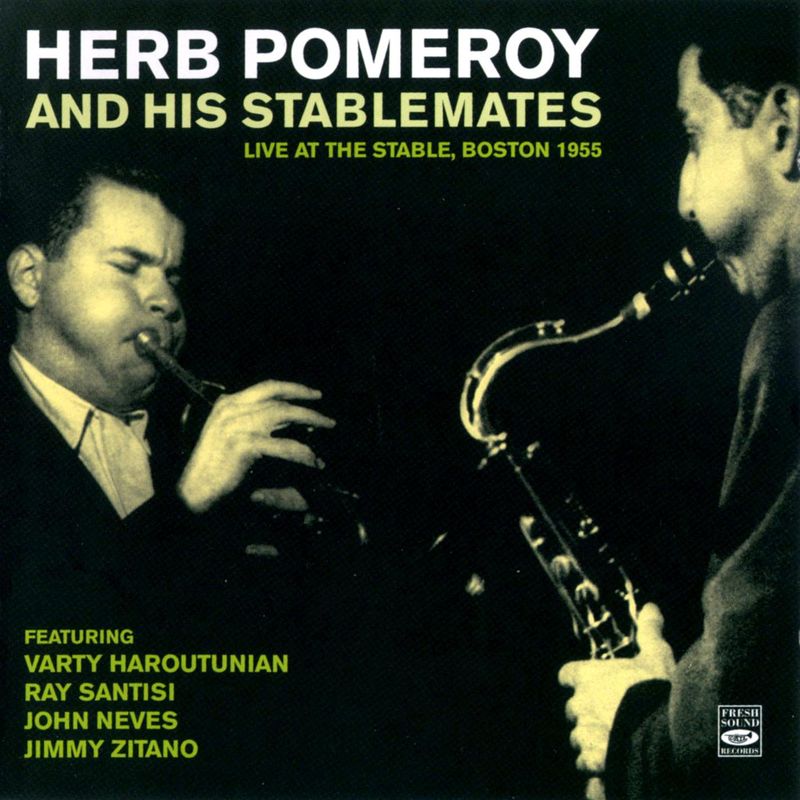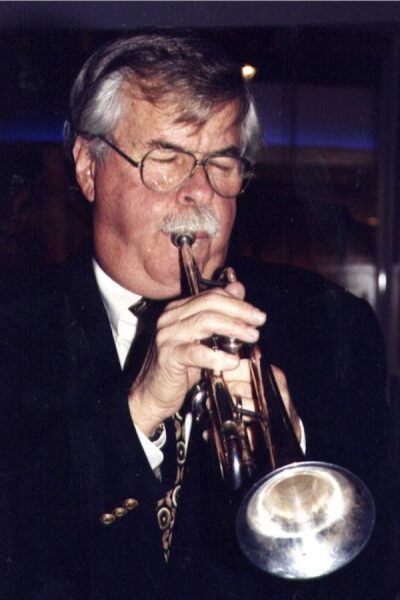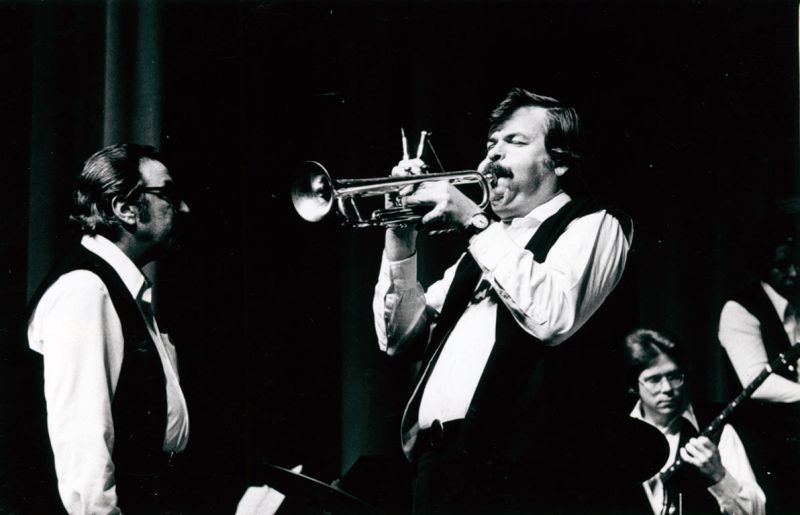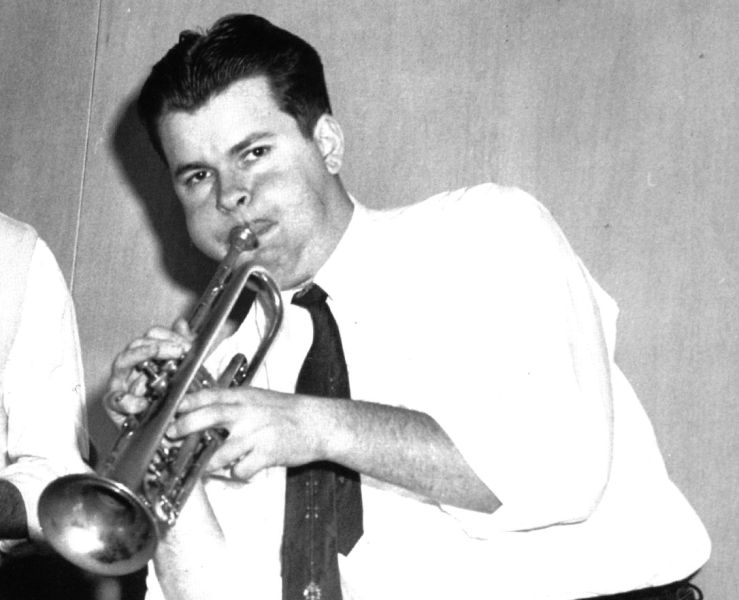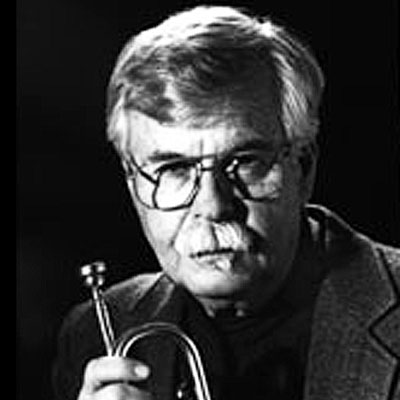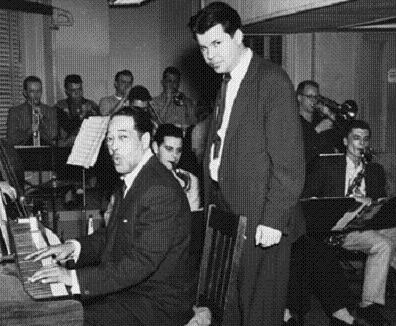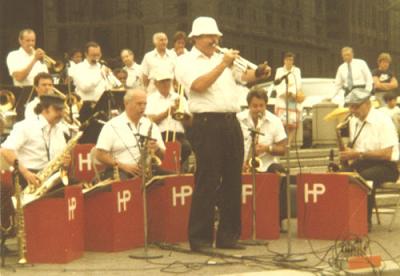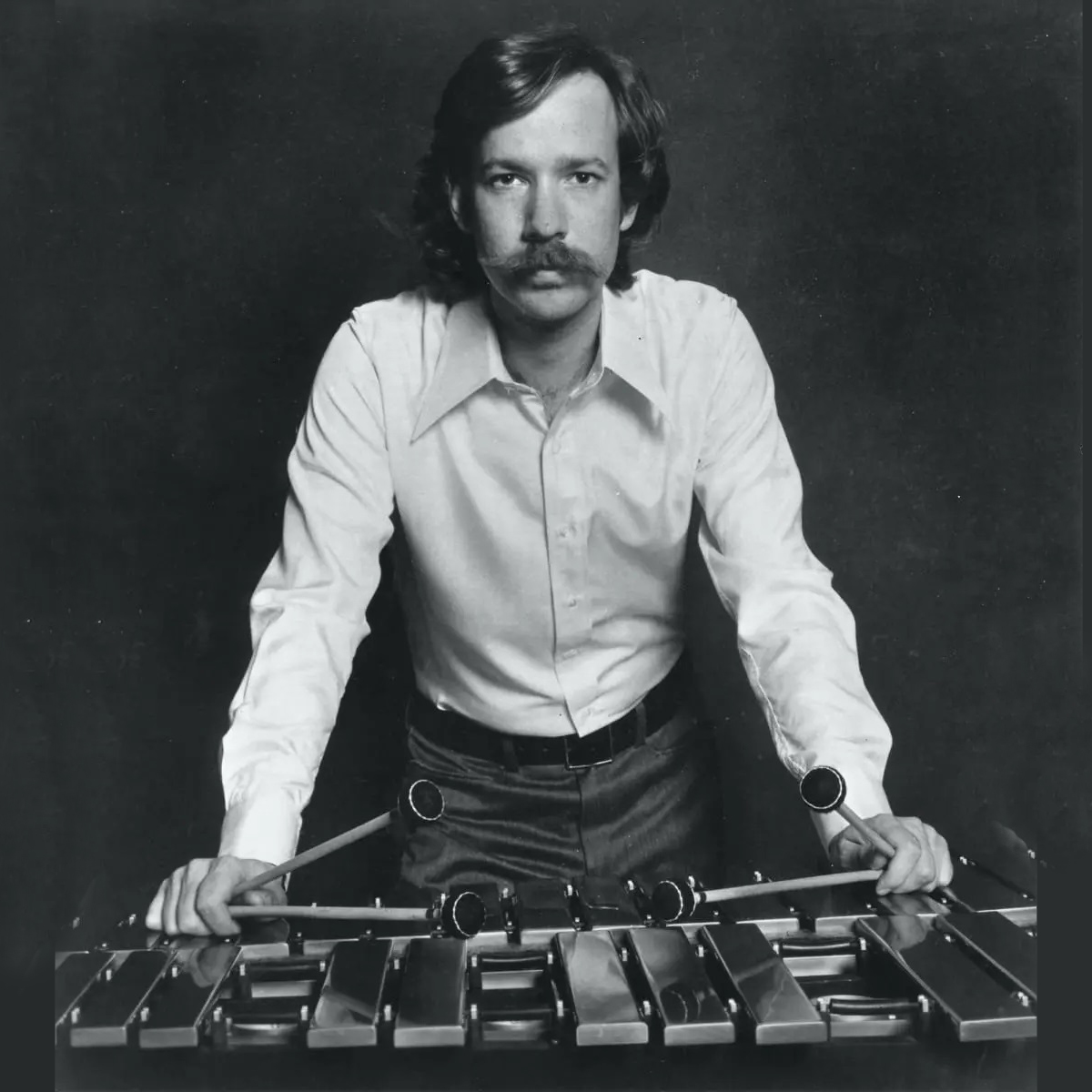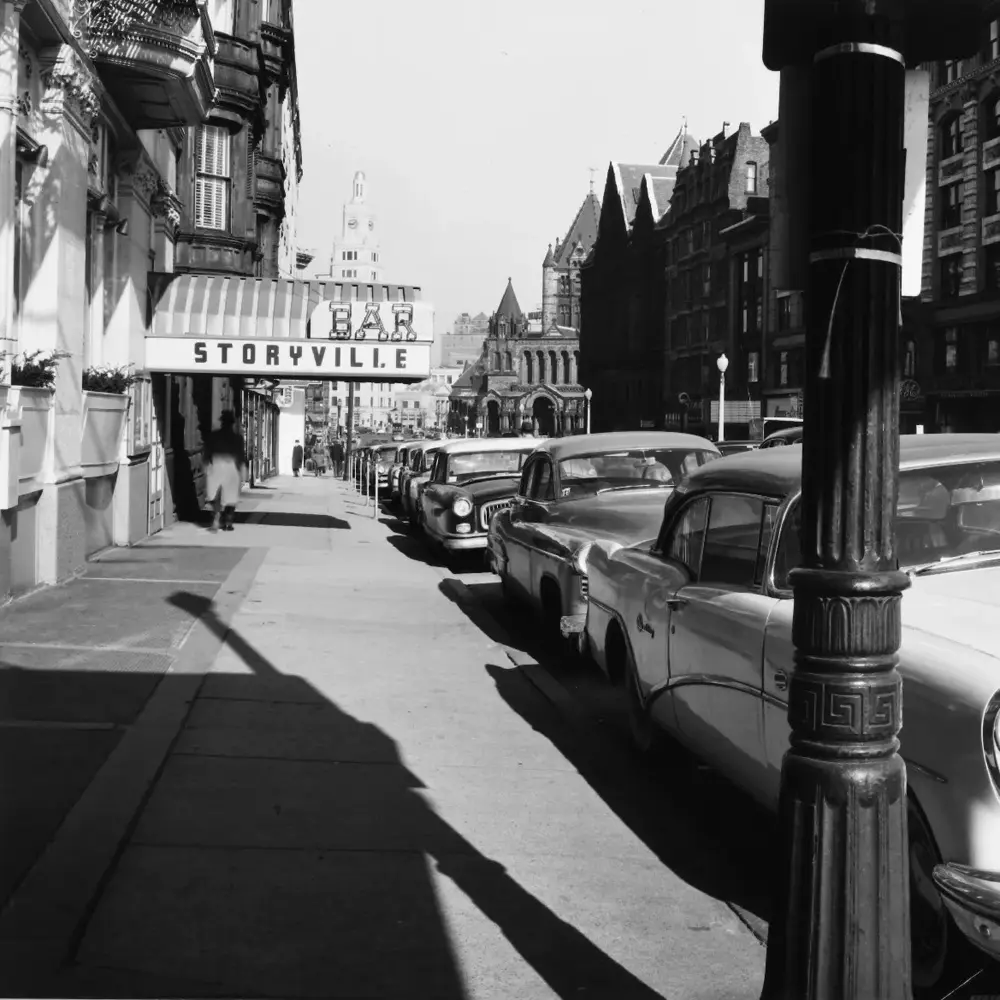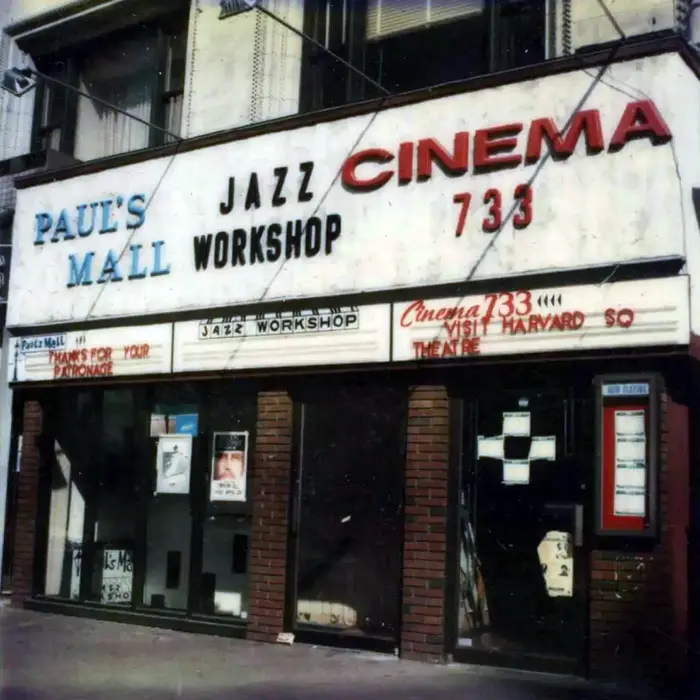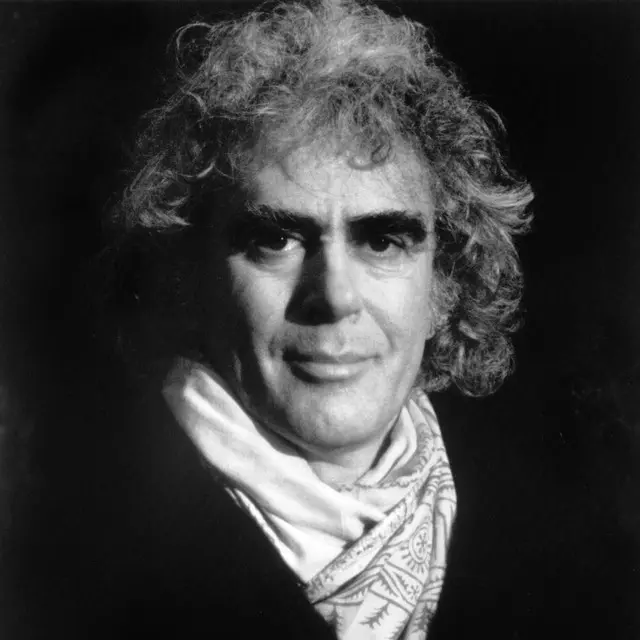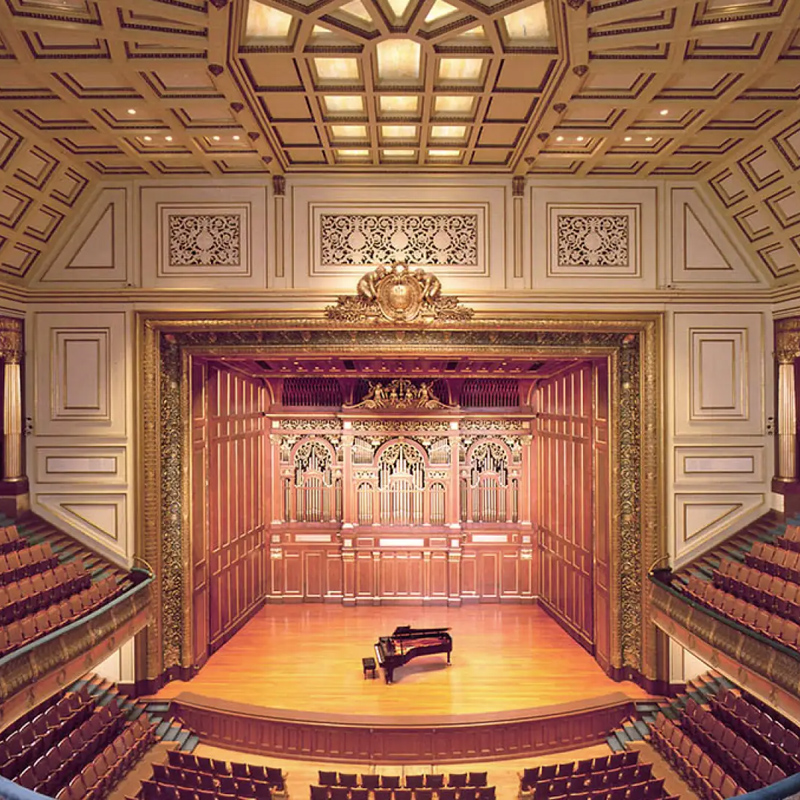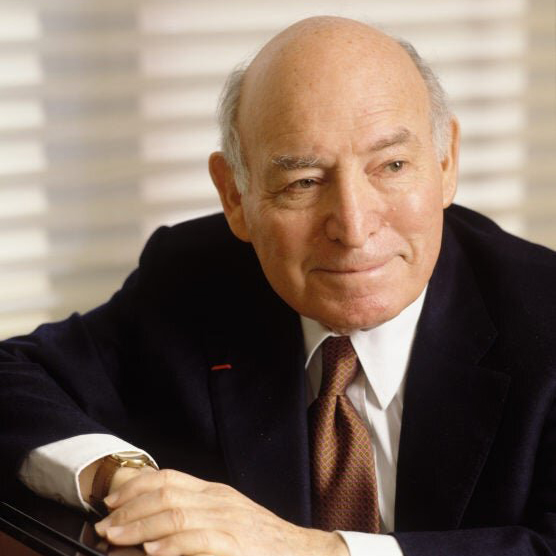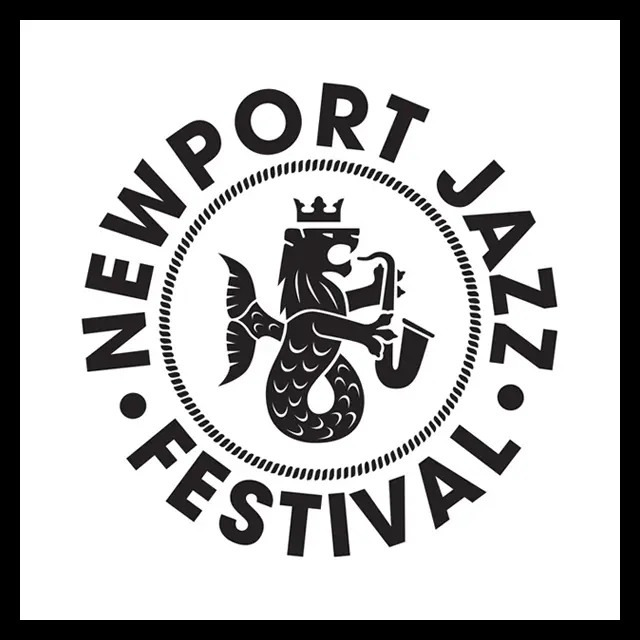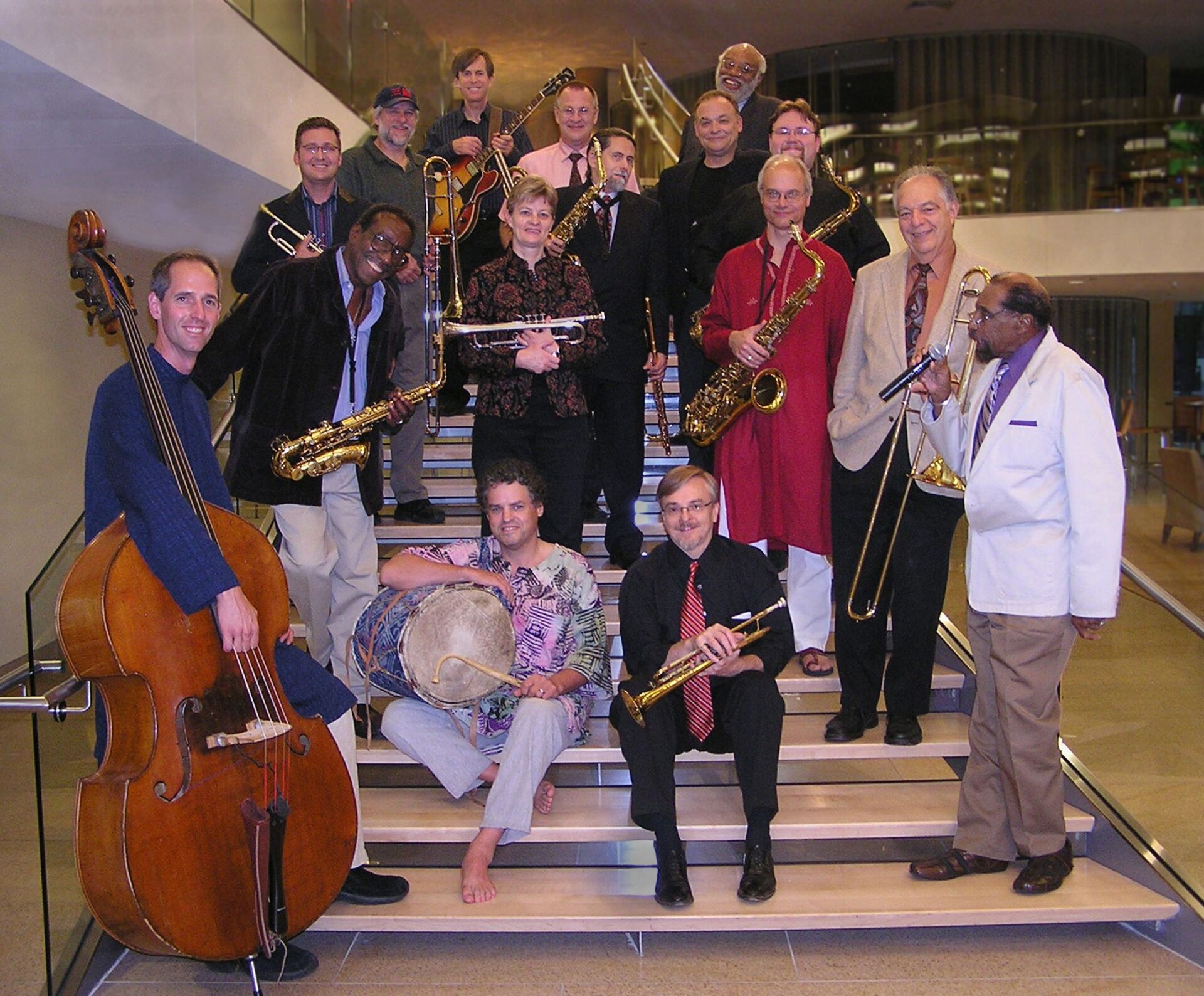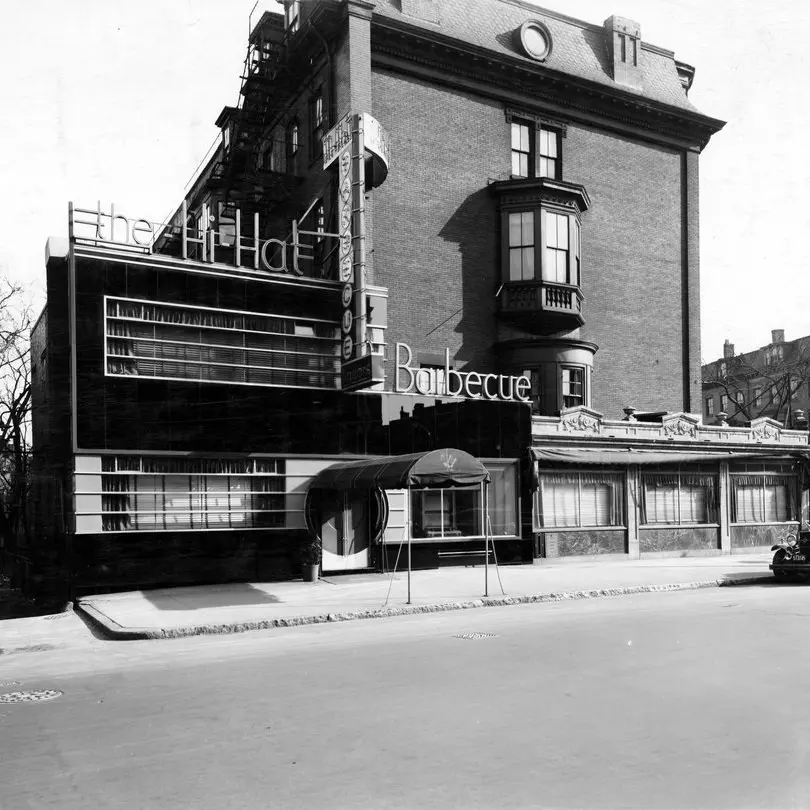A “musician’s musician” with an exceptional ear, tremendous technique and an instinct for innovation. A globally respected bandleader who pursued perfection while always cultivating creativity. And a distinguished educator who influenced young players in the classroom as profoundly he did from the stage. Herb Pomeroy was all of these things – in equal measure – and left a legacy that’s as much a testimony to his positive nature and strength of character as it is to his musical, organizational and pedagogical skills.
Born Irving Herbert Pomeroy III on April 15, 1930 in Gloucester, Massachusetts, Pomeroy grew up surrounded by music, his mother being a professional pianist who studied at New England Conservatory and his father, a dentist, being a jazz lover and amateur clarinetist who played with the Gloucester Legion Band. One of his earliest memories as a child growing up during the Great Depression was noticing how music united and uplifted people, as he explained in a 1999 interview with Forrest Larson of MIT’s Lewis Music Library. “Being the son of a dentist, we didn’t suffer during the Depression during the ‘30s in the sense of no coal for the furnace or no food, but times were difficult then, as anybody knows,” he said. “And music was one of those things that seemed to bring everybody together. And I had a sense, by the time I was in first grade in 1936, that there were a lot of families in a lot of trouble, but whenever music came into their lives, it seemed to give them great joy.”
MUSICAL BEGINNINGS
Around age three, he began regular piano lessons with his mother, who often rehearsed at home with her orchestra bandmates. At age seven, he started formal piano training at the behest of his mother, but hated the experience – largely because he was the only boy in a class of ten students, he said in 1999 – and quit after only a few lessons.
Over the next several years, he taught himself basic clarinet while continuing to practice piano at home, often going to Boston with his mother to see bandleaders like Cab Calloway and Xavier Cugat perform with their orchestras, before discovering his true musical passion, the trumpet, in 1941 when he saw Louis Armstrong playing one in the 1938 film Going Places (while singing the song “Jeepers Creepers,” winner of an Academy Award for Best Original Song). “I got hooked and I said, ‘I want one of those!,’” he said in the 1999 interview. The very next day, Pomeroy’s mother had the local high school band director – Antonio Gentile, an Italian immigrant who’d played with the Italian Army band in World War I – bring a trumpet to the house. “And from that point on, I just ran with it, or it ran with me,” Pomeroy said.
FIRST BANDS
Within six months, after taking regular lessons with Gentile, 11-year old Pomeroy was leading his first trio, playing at grammar-school assemblies, graduations and weddings. By the time he was in seventh grade, the band had grown into a sextet with a second trumpeter, two clarinetists, a trombonist and his mother on piano.
In 1944, 14-year old Pomeroy began playing professionally, which he attributed less to his own abilities than to many adult musicians serving in the military at the time, the height of World War II. By age 16, he was either rehearsing or performing seven nights a week: Mondays with the Gloucester Legion Band; Tuesdays with a dance band, The Musical Serenaders; Wednesdays with the Gloucester High ROTC band; Thursdays with the Rockport Legion Band; Fridays and Saturdays at schools and YMCAs; and Sundays at The Skyway in Essex, where Pomeroy said his “real development took place” since he played with musicians from all across Massachusetts’ north shore, not only from Gloucester.
SCHILLINGER HOUSE TRAINING
Following his junior year at Gloucester High School, Pomeroy’s parents enrolled him at Williston Academy in Easthampton, Massachusetts, his father’s alma mater, where he had to repeat his junior year after subpar entrance-exam results. In the summer of 1948, between his junior and senior year, he took lessons at Schillinger House (now Berklee College of Music) on trumpet, piano and arranging and in the fall of 1950, after spending a year at Harvard studying dentistry, he enrolled at Schillinger House full time. He left at the end of 1952 after five semesters because he was unimpressed by the Schillinger composition system’s focus on mixing math and music. “It totally turned me off,” he said in 1999. “I knew [I wanted to] get rid of the math and get into the feeling and the emotion, the expression and all that.”
FIRST CLUB GIGS, NATIONAL TOURS, THE HERB POMEROY ORCHESTRA
In 1953, Pomeroy played with various groups at Boston clubs including Storyville and The Hi-Hat, the latter of which was the site of a January 1954 show in which he joined bebop pioneer Charlie Parker, bassist Charles Mingus, drummer Art Taylor and percussionist Candido, as captured on the album The Bird You Never Heard, issued in 1988 by Stash Records. He made his first national tour backing Lionel Hampton, then formed The Herb Pomeroy Orchestra – a 13-piece ensemble that became the house band at The Stable in Boston’s Back Bay – before touring with Stan Kenton.
THE SERGE CHALOFF SEXTET, THE FABLE OF MABLE, BOSTON BLOW-UP!
In 1954, Pomeroy worked with a nine-piece band led by legendary baritonist Serge Chaloff which included saxophonist Charlie Mariano, recording the LP The Fable of Mable (Storyville, 1954, engineered by George Wein). in 1955 he joined The Serge Chaloff Sextet with Mariano, saxophonist Boots Mussulli, pianist and future Berklee professor Ray Santisi and drummer Jimmy Zita to record Chaloff’s now-classic comeback album, Boston Blow-Up! (Capitol Jazz, 1955), which DownBeat critic Jack Tracy gave five stars.
FIRST ALBUMS AS BANDLEADER
Also in 1955, Transition Records issued his first LP as bandleader, Jazz in a Stable – which received a five-star review from DownBeat magazine – and in 1957 the Roulette label released his second, Life is a Many Splendored Gig. Pomeroy made five more LPs as leader: Band in Boston (United Artists, 1958), The Band and I (United Artists, 1958), Pramlatta’s Hips (Shiah, 1980), This Is Always (Daring, 1996) and Walking on Air (Arbors, 1997).
BERKLEE PROFESSORSHIP, MIT JAZZ BAND, FESTIVAL JAZZ ENSEMBLE
Also in 1955, after helping establish The Jazz Workshop in Boston with Mariano, Chaloff, tenor saxophonist Varty Haroutunian and pianists Ray Santisi and Dick Twardzik, Pomeroy began teaching at Berklee, where he remained on staff for 41 years and among his students was Gary Burton. In 1963, he took control of the Massachusetts Institute of Technology’s student jazz band, founding the school’s award-winning Festival Jazz Ensemble (FJE) that same year and taking them to the Montreux Jazz Festival in 1970, the first college ensemble to appear at the prestigious event.
NEWPORT JAZZ FESTIVAL, CARNEGIE HALL DEBUTS
In 1958, after appearing at venues like the Apollo Theatre and Birdland in New York, Pomeroy and his orchestra debuted at the Newport Jazz Festival alongside the Duke Ellington Orchestra, the Benny Goodman Orchestra, the International Jazz Band and the Maynard Ferguson Big Band. “Boston can well be proud of the Saturday afternoon appearance of the Herb Pomeroy band,” wrote John McLellan in The Boston Traveler. “It was a big-time debut which completely flipped critics and musicians as well as the audience.”
Over the next years, The Herb Pomeroy Orchestra appeared at Carnegie Hall and other major venues while supporting singers including Frank Sinatra, Tony Bennett, Dionne Warwick and Sarah Vaughn and playing on bills with Stan Getz, Zoot Sims and Gerry Mulligan, among others.
AWARDS, ACCOLADES, POST-RETIREMENT ACTIVITY
In the spring of 1995, before his retirement from Berklee later that year, Pomeroy received the school’s first Alumni Association Award, then an Honorary Doctor of Music degree. In 1996, he was inducted to the International Association of Jazz Educators Hall of Fame, followed in 1997 by the DownBeat Jazz Education Hall of Fame. In 2004, the Boston Musicians’ Association named Pomeroy Musician of the Year.
After retiring, Pomeroy taught at the Lenox School of Music and ran workshops through the Gloucester Education Foundation while performing as a guest artist with the FJE from 2000-2005. With his own band, he appeared multiple times at the Antonio Gentile Bandstand Summer Concert Series at Stage Fort Park in Gloucester, named after his first trumpet teacher. In 1986, Pomeroy served on the committee that built and named the bandstand.
DEATH, LEGACY
On August 11, 2007, Pomeroy died at age 77 at his home in Gloucester. Founder of Aardvark Jazz Orchestra Mark Harvey called him “an Ellingtonian model of generosity, warmth and superb musicianship” while Dave Ricks, a former FJE production assistant, spoke of how Pomeroy inspired empathy and compassion.
“Herb taught us more than music,” he said. “He helped me refine the way I deal with people. He was a master of making things better by bringing out the best in people. Whenever I get confused about what other people are, and what other people are for, I remember how Herb worked with us, and I just focus on treating other people well.”
(by D.S. Monahan)

